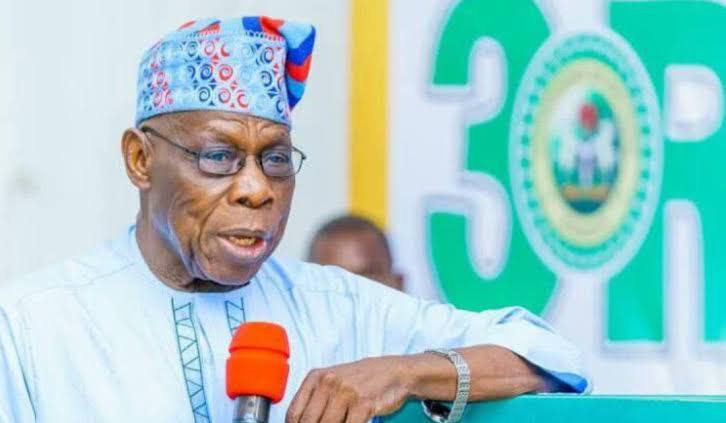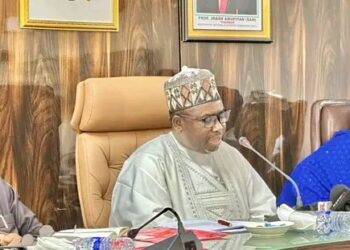Obasanjo said this on Monday in Abuja, while speaking at a Colloquium to mark the 60th birthday of former Imo Governor, Emeka Ihedioha.
He said that to sustain democracy in the continent, Africa needed one that delivers to all people, not to few section.
He noted that the Greek model of democracy, ensured that all citizens participated directly in their affairs, adding that what was praticable now was a representative system, that does not taken care of everybody.
He added that before the colonial rule, Africa practiced democracy, a system of government which attended to the needs of her people.
Obasanjo lamented that in Africa, democracy was becoming a system of government by a small number of people over a large population.
“Is democracy failing in Africa? Are we talking of democracy or western liberal democracy?
“Abraham Lincoln describes it as a government of the people, by the people and for the people. But what do we have today?
“The Greek democracy affects everyone, but democracy has now become representative democracy and it doesn’t taken care of everyone.
“Democracy in Africa has failed because it’s not African, it doesn’t have our culture and way of lives.
“Democracy is dying in Africa and to save it, it should be made in the context of Africa,” Obasanjo said.
Similarly, the Catholic Bishop of Sokoto, Bishop Hassan Kukah, described democracy in Africa as a work in progress.
“We Africans inherited a system that’s not ours, but we can’t say its not relevant to us.
“There are differences between democracy in Asia and that of Africa. What do you make of the tenets of democracy in Africa?
Kukah noted that democracy was about equity and justice, adding that there must also be a mechanism for measuring the growth of democracy.
“The democratisation of development leads to the development of democracy. That is if you decide to equitably democratise development, and not take every institution, university, medical school whatever to your village and if all the roads are done
“If we do not have a mechanism by which we are measuring our growth, our chase for a democratic society becomes an empty chase.
“Democracy and its principle are endless contestation of ideas, opportunity and privileges. Those who are privileged want to hold on to their privileges and those who are victims want to insist that life can be better,” Kukah said.
In the same vein, the Labour Party Presidential Candidate in the 2023 Presidential election, Peter Obi, urged Nigeria to imbibe the Indonesian democracy, which endures a proportional representation system of government.
Also, the former Secretary-General of the Commonwealth, Chief Emeka Anyaoku, said that Nigeria could get rid of the crises which impede her development, through stable democratic governance.
Anyaoku said that Africa and Nigeria in particular, have the responsibility to get a stable democracy and change the Eurocentric narrative.
“True federalism is the answer to the management of national issues. The recent coup in Mali, Niger tend to take us back.
“The nature of our politics and the conduct of our politicians is another problem of our democracy. They have become instruments of capturing political power,” he said.
In his remarks, Ihedioha commended the guests for celebrating him at 60.
He urged Nigerians to continue to defend the country’s democracy.
According to him, my father told me that the most expensive habit is having friends. I have lived my life pursuing the cause for democracy.
“We should all rise to defend democracy. I urge all men to always speak truth to power and protect democracy.
“There’s life after money. I will remain who I am. For me and democracy, it is till God do us apart,” Ihedioha said. (NAN)









